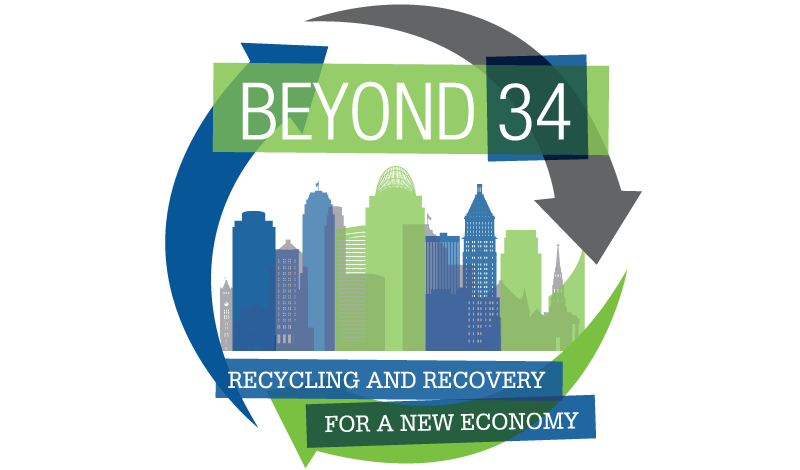U.S. Chamber Foundation Expands 'Beyond 34' Recycling Initiative to Cincinnati
May 23, 2019
Private-Public Partnership Will Foster Sustainable Economic Development for Businesses and Communities
WASHINGTON, D.C. — The U.S. Chamber of Commerce Foundation today announced that the City of Cincinnati will serve as the next location for its multi-stakeholder recycling initiative, Beyond 34: Recycling and Recovery for a New Economy. The initiative aims to increase the current 34 percent recycling rate in the United States by providing a collaborative, data-driven, and scalable model for increasing recycling and recovery in local communities.

“The Beyond 34 model will help Cincinnati meet its sustainability goals and drive economic growth,” said Marc DeCourcey, senior vice president of the U.S. Chamber of Commerce Foundation. “Cincinnati rose to the top after our analysis of several U.S. cities using criteria important to successful recycling programs such as local policies, recycling education, and data collection. We look forward to collaborating with local leaders on the application of our Beyond 34 model.”
Cincinnati has committed local leadership and valuable recycling data, attributes essential to success in improving recycling rates. The city has already committed to a goal of achieving zero waste by 2035 as part of its Green Cincinnati Plan.
“For more than 25 years, Cincinnati residents have diverted more than 350,000 tons of material from the waste stream,” said Cincinnati Mayor John Cranley. “This diversion is due to our significant recycling efforts including every other week collection of recyclables, data initiatives via the RFID technology in city-issued bins, and engaging residents on recycling non-traditional materials such as textiles, e-waste, and housewares. Beyond 34 will help our city identify the highest impact projects to build on our existing recycling efforts and get closer to our zero waste goal.”
The project will be implemented as a private-public partnership between the U.S. Chamber Foundation, the City of Cincinnati, Hamilton County, and the Cincinnati USA Regional Chamber. The Rob and Melani Walton Sustainability Solutions Service at Arizona State University is the technical partner for the expansion effort.
“Cincinnati is an innovative and creative future city, and we are excited to be part of this effort to advance those values in our local waste management system,” said Jill P. Meyer, president and CEO of the Cincinnati USA Regional Chamber. "The Cincinnati Chamber is excited to see the Beyond 34 effort engage our businesses and residents, and empower them with the knowledge and projects that will revolutionize sustainability and how we manage our waste.”
The application of the Beyond 34 model in Cincinnati is one component of the expansion effort. A series of online tools and resources to empower community leaders to implement the Beyond 34 model in communities nationwide is forthcoming.
The United States recycling rate has hovered around 34% for the past decade. Factors behind this include the challenge to educate and motivate consumers to recycle correctly; the cost and time required to modernize and build new recycling and sorting infrastructure; and the lack of consistently strong markets for certain materials.
The U.S. Chamber Foundation launched the Beyond 34 pilot project in Orlando, Florida in September 2017. The Beyond 34 expansion effort is made possible with support from the Plastics Industry Association, Walgreens Boots Alliance, and the Walmart Foundation. More information on Beyond 34 and how it provides a community-centric approach to U.S. recycling issues is available here.
The U.S. Chamber of Commerce Foundation is dedicated to strengthening America’s long-term competitiveness. We educate the public on the conditions necessary for business and communities to thrive, how business positively impacts communities, and emerging issues and creative solutions that will shape the future.
The U.S. Chamber of Commerce is the world’s largest business federation representing the interests of more than 3 million businesses of all sizes, sectors, and regions, as well as state and local chambers and industry associations.
